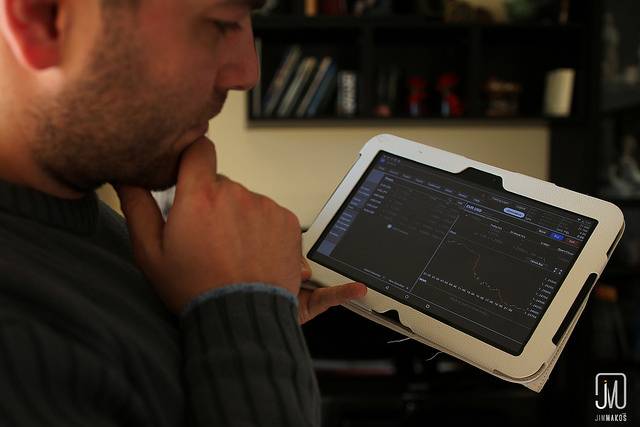
Starting a forex trading business is a relatively simple undertaking. All you need is a reliable forex broker, a feature-rich trading platform, and a small amount of capital to buy and sell currency pairs. However, there are certain pitfalls, risks and factors that you need to be aware of to trade effectively and turn a profit.
The forex market is inherently different from the stock market. More than $5tn is traded every day, mostly by ‘institutional’ traders connected to large institutions and companies. These trades account for 94.5% of activity on the forex market. When starting a business, you will work as a retail trader and make use of leverage offered by brokers to support your entries into and exits from the market.
Learn the basics
You can trade without prior knowledge of forex, but it is not recommended as you will run up significant losses very quickly. Thus, it is necessary to first learn how to get started in forex trading. Opening a demo account is arguably the best way to get to grips with the different aspects of forex trading as you will be able to experiment freely and adopt new strategies without the fear of financial setbacks. You can also watch video tutorials, attend webinars, and read relevant blogs and articles for both basic and advanced insights.
Another key skill for forex trading is technical analysis. Mastering the art of reading charts and indicators such as Bollinger Bands, the Relative Strength Index (RSI) and the Moving Average Convergence Divergence (MACD) will enable you to identify movements and trends that can be used to make profitable moves.
Select a reliable broker
Forex brokerages effectively act as a middleman between you and the forex market, so it is vital that you choose a broker that is not only reliable and regulated, but also well suited to helping you achieve your financial goals. Legitimate traders will provide you with a trading platform that is secure, has access to major pairs, uses advanced forex software provider and offers additional tools and charts to support your decision-making.
Be aware that there are scam brokers that will attempt to dupe unsuspecting victims with a range of fraudulent practices such as Ponzi schemes and signal seller scams. Malicious third parties may also attempt to present themselves as reputable outlets and promise large profits, when in fact they are fake or illegitimate. You can find authentic brokers by reading reviews and investigating beforehand.
Organize your trading capital
Trading foreign currencies have a lower point of entry compared to stock as investors can set up an account with as little as $10 or $20. Brokers also offer something called to leverage that allows you to trade more than you have in your account. A leverage of 50:1, for example, would give you access to $100,000 if you deposited $2,000 into a margin account.
While leverage is beneficial for beginners as it increases their trading position beyond an opening cash balance, it can amplify losses and lead to financial woes if not used correctly. If you manage leverage carefully though, you can mitigate many of the downsides and use it to your advantage.
Practice, practice, practice
As noted earlier, opening a demo account will give you free rein to practice your trades so that you have a better understanding of when to buy and sell at the right time. This is also a perfect opportunity to try out new strategies and tactics. You should keep practicing for a few weeks at least or until you feel comfortable making the step up to real money.
Trade for real money
Trading real money on forex will expose you to certain pitfalls that you may not have experienced during your practice trade. It is important to remember that forex is not a shortcut to instant wealth. You will need to slowly nurture and develop your account, especially during the formative weeks and months, to make sustainable profits.
However, don’t be deterred by a losing streak either. It is statistically normal for even the most successful traders to run into a barren period when losses mount up. These downturns should not be a signal for you to close your account as you should eventually be able to bounce back if you keep making the right moves.
Finally, just because you have started a forex business does not mean that you have to be trading 24 hours a day, seven days a week. The forex market is ‘always on’ due to the time zones for each region, but try to work for a set seven or eight-hour period that fits into your daily schedule at first and then go from there. Remember, the smartest move sometimes is to sit back and not enter the market.
Taking this advice on board will give you the best chance of setting up a business that can support profitable day trading on the forex market.


